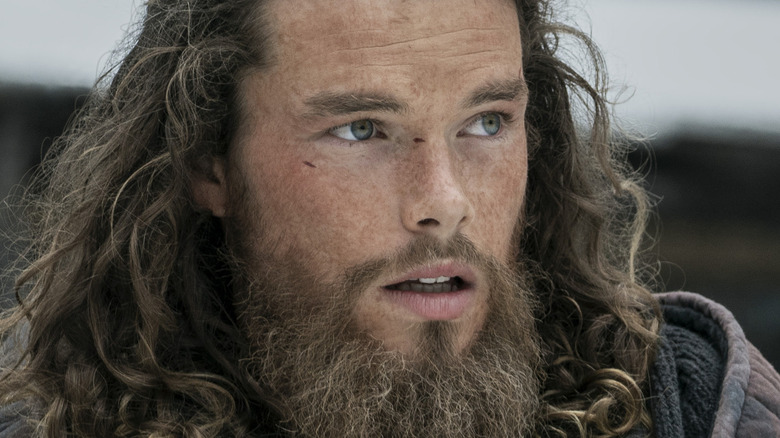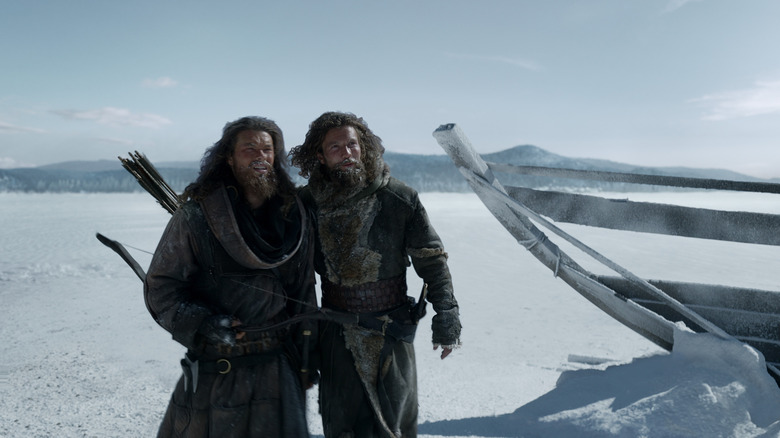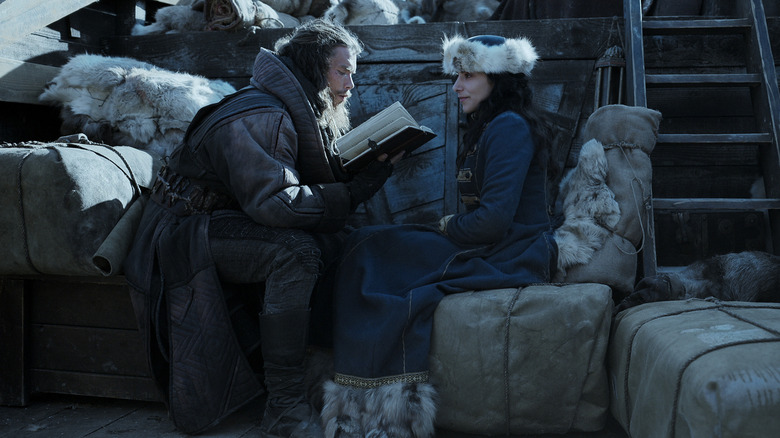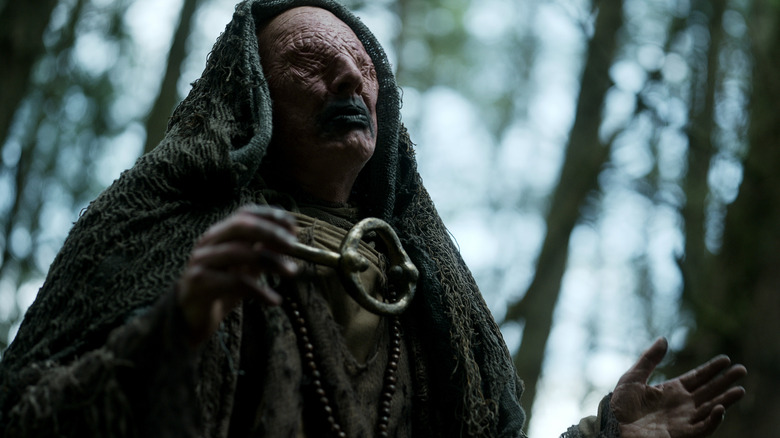Vikings: Valhalla Showrunner Jeb Stuart Discusses The Nuances Of Season 2 - Exclusive Interview
"Vikings: Valhalla" is headed into Season 2, and with it, the characters are ready to embark on a new set of epic adventures. Fans have come to know and love the Vikings within the walls of Kattegat, but Season 2 is branching out to explore more of the expansive world.
While fans are hesitant to see some of the core gang part ways for at least a short time, series showrunner Jeb Stuart is excited by the prospect of a new dynamic. Of course, he isn't opposed to bringing fan favorites back together, which is what makes television such an exciting venture. Given Stuart's work penning popular films like "Die Hard," "The Fugitive," and "Another 48 Hrs.," the writer is clearly up for the challenge.
Looper spoke to Stuart during an exclusive interview in which he discussed the representation in Season 2, the dark way that the Vikings treated women, and diving into more action sequences.
Absence makes the heart grow fonder
Congratulations on the 2nd season of "Vikings: Valhalla." The 1st season established everything, and we got to know the characters. Now that you've done that, did you have a particular goal for Season 2?
I wanted to test them in the big world outside of Kattegat. Historically, we know that Harald took this journey, so it wasn't like I was breaking with history, but we don't know a whole lot about that journey because he took his poets and his scholars with him, and they told a great [story about it]. It's like taking your PR team with you. "Everything Jeb does is great. It's really terrific. He was super. There were no downsides." We know that didn't happen.
What is really fun for me is taking all of them and having to rebuild their legacies. How did this happen? If I kept them in the mothership, it would've just been another season in Kattegat, in England, and things like that. I'm excited about this because it starts to broaden and tell a more lifelong story of all these very important Vikings.
The breadth of the season is incredible, but it also puts these characters on separate paths. How did you find a throughline for the season when the main characters are all off on their own journeys?
There's always this moment of discomfort [whenever] there's going to be separation because there's security in, "Let's keep the band together." I don't want George and Paul to go off and do different albums. At the same time, it's great because there's nothing keeping our group from coming back together. And when they come back together, they have different growths, they have different thoughts, [and] different experiences have impacted them.
That was one of the things that was always appealing to me coming into this show, and I knew we were going to do this in Season 2, even when we were working on Season 1. Because I knew it, I could share it with the actors. We could talk about how it would work. And going into Season 3 is a continuation of that growth.
Representation and the dark history of Vikings
There's more diversity this season: There are more people of color [and] there are different religions. Why did you feel that [now] was [the right time] to introduce [this component]?
One of the things I thought was really cool about the Viking culture is that they didn't really ... Even for these travelers who went all over the known world — there's Viking DNA all over the Middle East and all over Africa. It's unbelievable how it's been spread. If that's the case, how do we know how Vikings reacted to Black Africans? What we know is that they didn't really have a word for racism. They treated people in a way that I think we would like to feel, which is, "If you can pull your weight, if you can do it, if you have value, I'm cool with that." They added that culture. In [the] 11th century, that's a pretty progressive thought. That's a pretty progressive thought for the 21st century.
It's fun to write [about] that. Getting them out of Kattegat allows us to get into this broader cultural world out there, to find a Muslim woman who just happened, in the 11th century, to have the benefit of the House of Wisdom, which allowed women to have this incredible intellectual blossoming, so to speak. What would happen if a woman like that ended up in the northern part of the Rus and ran into Leif Eriksson? How neat would that be? It provided all sorts of avenues to go explore, to go play in.
There's an incredible array of women characters this season, all in very different circumstances. There are woman slaves, and then there's a woman who's an intellect, and of course, Freydis, who's a badass. Was there a lot of thought [in] presenting the different ways that women were treated at that time?
The slavery issue is an important part for me because I thought it was fascinating. We know that the Vikings raided a great deal in Scotland and Ireland. In fact, where I lived in Dublin, I could look out on Dalkey Island, which was the island where the Vikings kept their slaves, and then they transported them to Iceland and the Baltic and places like that. You sit there and you think, "Gosh, women from all over, and men and children." But red-haired women were prized in the Mediterranean. Imagine if you had a harem and suddenly you had these three red-headed women from Ireland show up in your harem. What does that look like?
It's one thing to talk about slaves. It's another thing to be on a boat with them. There's this idea, this cultural awareness that slavery exists — our Vikings knew that. Vikings were big slavers, and yet, what happens when our heroes are put into close quarters with these women? It's really interesting how that soup works, and it was fun to play in that area, fun to look at it hard and to make a story out of that.
Bringing the action to Valhalla
This season, because things are more insulated, there aren't those massive battle sequences between the English and the Vikings, but there's still plenty of action, plenty of harrowing life-or-death scenes. What was the process of ensuring the show lived up to the reputation for action it had in Season 1 but sticking to the story you were telling in Season 2?
We didn't have, let's say, a London Bridge that we build into, for Episode 4, or a Battle of Kattegat. But as an action writer, as someone who writes character action, I wasn't going to have Season 2 be flatlined through. It's got tons of really good action, and it's also action that is organic to the journeys that they're on.
There [are] some wonderful pieces along the Dnieper River and great pieces in Jomsborg. In fact, what we do is that every episode has its moments. Either they're suspenseful, or they're action beats that we feel are satisfying to our audience — because I'm the audience. You're satisfying me first, and if I'm happy, I feel like it's serving the needs of everybody else.
Season 2 of "Vikings: Valhalla" is available now on Netflix.
This interview has been edited for clarity.



